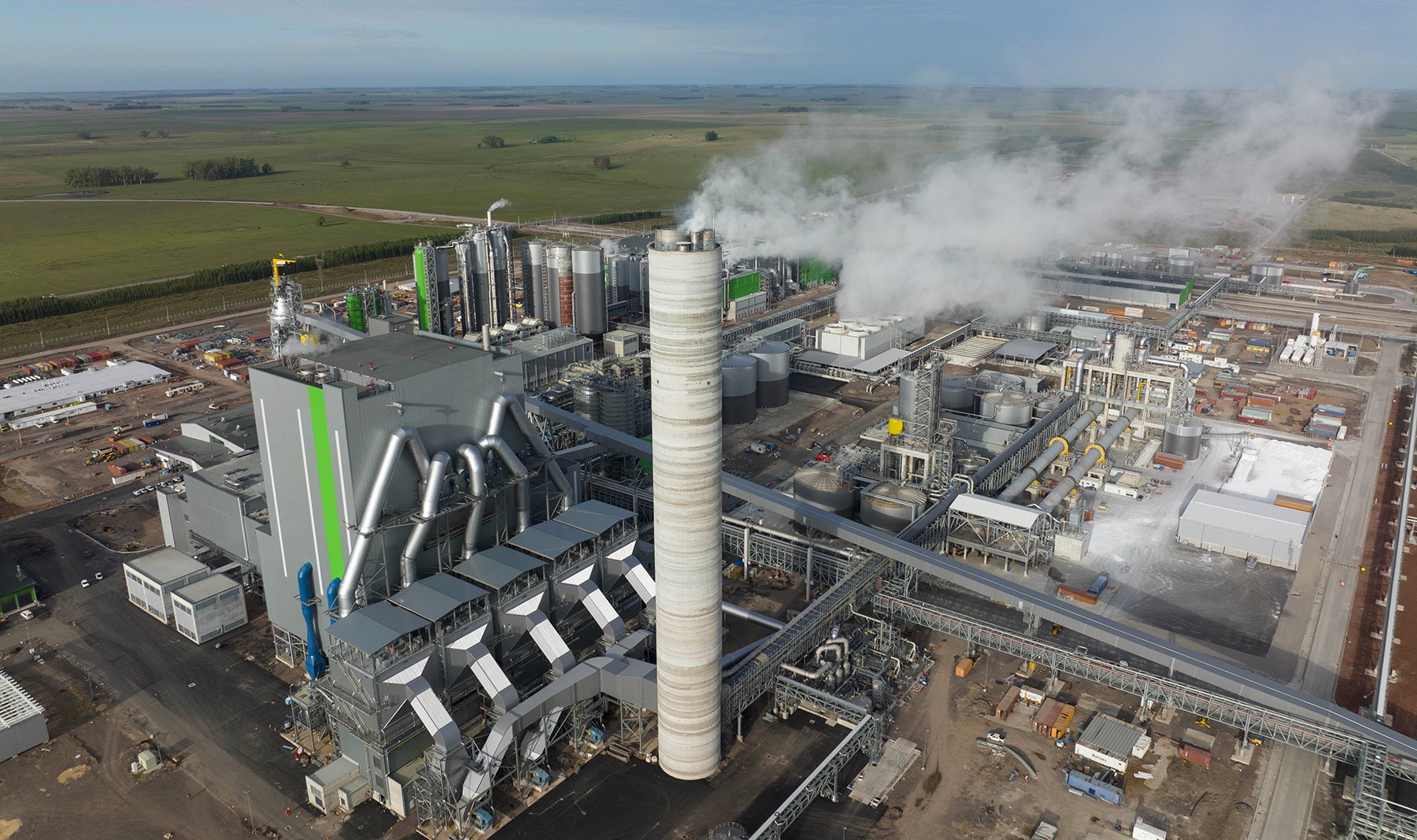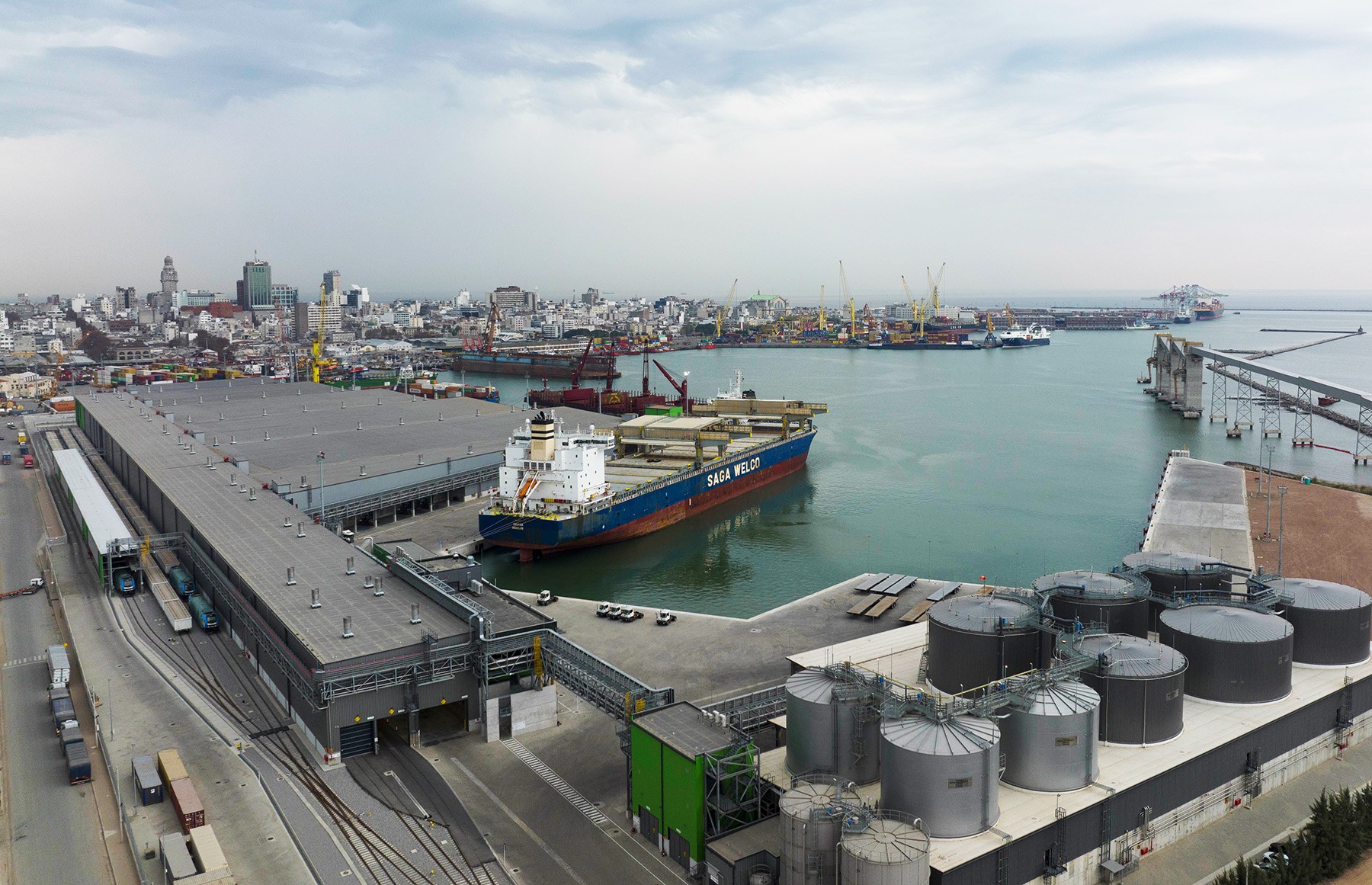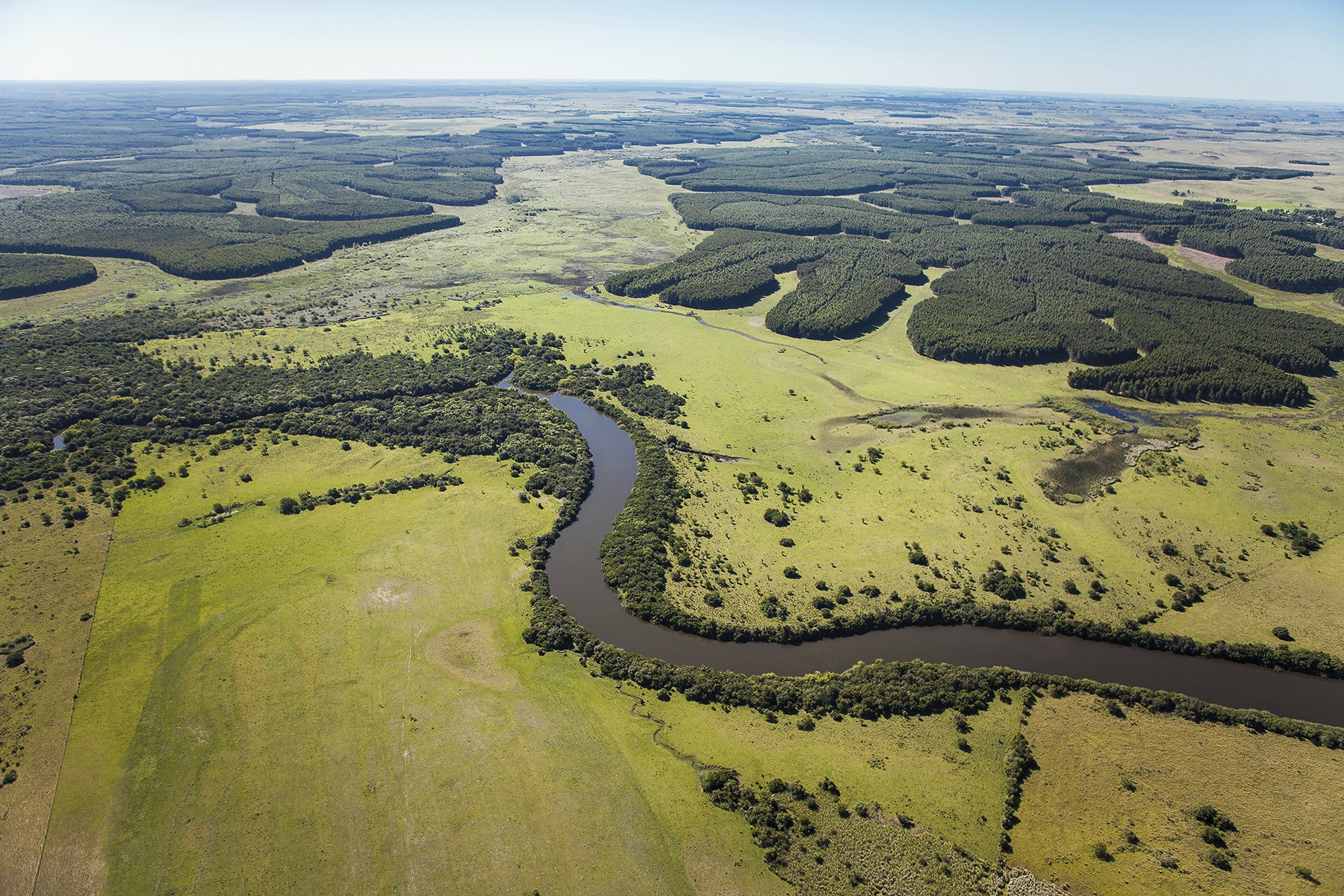
‘Step change’ project includes new pulp mill in Paso de los Toros, a new terminal at Montevideo’s deep sea port, community developments in housing, landfill and waste water treatment … and a more than 50% increase in pulp capacity. Sari Hörkkö, Director, Pulp Communications and Marketing, UPM Fibre, explains. A TWM report.

In spring UPM celebrated a significant milestone with the completion of its transformative growth investment in Uruguay. Over the years UPM has worked to create a modern industrial platform with world class pulp mills, sustainable and secure wood supply, and efficient logistics in Uruguay.
The UPM Paso de los Toros mill started operations in Centenario, central Uruguay, near the city of Paso de los Toros in mid-April. Despite the pandemic, the mill start-up took place just 44 months after construction work began in 2019.
The first customer deliveries from the new plant were shipped from UPM’s equally new pulp terminal in the port of Montevideo in May – they had already reached the first customers in China in July. Currently UPM is successfully implementing the mill’s ramp-up phase towards reaching full production capacity of 2.1 million tonnes of bleached eucalyptus kraft pulp annually.
The pulp mill has been designed as an efficient single-line operation representing state-of-the-art production in the industry, using the best available techniques (BAT). The machines, materials, level of automation and standards enable safe operations, high operating rate, and optimal maintainability. The plant’s environmental performance is verified with comprehensive and transparent monitoring.
Step change to top league
Together with the annual 1.3 million tonnes eucalyptus pulp capacity from the UPM Fray Bentos mill in the southwest of Uruguay, UPM’s total eucalyptus pulp production capacity in Uruguay will increase to 5.8 million tonnes a year. In addition, this expansion will raise the position of UPM and the country of Uruguay among the world’s biggest sources of eucalyptus pulp.
UPM Uruguay’s Vice President, Pulp and Forestry Operations, Marcos Battegazzore, says the company now has 16 years’ experience running the UPM Fray Bentos mill and more than 30 years’ experience in sustainable forestry in Uruguay. He says that this combined experience, developed expertise, and R&D foundation provides the business with “a unique end-to-end view of the entire value chain.” It means the business can offer “a competitive and secure pulp supply to our existing and new customers and helps meet the globally growing need for renewable materials. With an increase of more than 50% in UPM’s current pulp capacity, this investment creates a step change in the scale of our pulp business and UPM’s future earnings.”
Besides the Paso de los Toros pulp mill, the project has included building a new pulp terminal in the deep sea port of Montevideo, as well as local facilities such as housing and improved municipal landfill and waste water treatment in nearby communities. The total investment adds up to USD3.47bn and is the largest ever in the history of UPM.
The terminal is a core piece in the operation of the Paso de los Toros pulp mill. It’s used for receiving, handling, and storing pulp and chemicals needed in pulp production. Operational since October 2022, this highly specialised, fit-for-purpose terminal targets maximum efficiency, with 100 people working in three shifts.
Andrés Rey, Senior Manager from UPM’s Industrial Logistics team in Uruguay, has been part of the terminal project from the design phase. “The terminal works 24/7 every day of the year and it can handle over two million tonnes of pulp annually. A total of 50,000m2 of warehouse space has been built for the terminal operations – enough to store 150,000 tonnes of pulp.”
The dock at the Montevideo port has been built to allow larger vessels to enter the port for cargo loading. “Our pier is 240 metres long and can accommodate vessels up to 225 metres long, with approximately 50,000 tonnes of pulp intake.”
The dock can also handle operations of two very different types of vessels, making it unique in the industry: the pier can serve both tankers with liquid cargoes and general cargo vessels, with minor adjustments required and less idle time in between. In addition, the company has pulp handling tools and systems that cause the least damage to the cargo.
The project also includes a 12,000m2 roofed unloading area which allows the unloading of cargo directly to the warehouse in all weather conditions. Furthermore, the terminal features fully centralised systems to boost logistics.

To get the pulp from mill to port UPM will use the rail line on which the Uruguay state is putting the finishing touches to create an improved – and mostly rebuilt – railroad. There is full railway access planned but it’s not yet operational. In the meantime, the company uses trucks as an alternative means of transport. Along with pulp heading to the port, trucks are also travelling to the mill with raw materials for pulp production.
UPM will be one of the main users of the 273-kilometre rail connection leading from Paso de los Toros to the capital. The state-owned railway is open to other users as well, including passenger trains.
As the government is finalising the railway connection, UPM is ready to gradually shift logistics from road to rail.

Research based eucalyptus expertise
To secure the availability of high-quality eucalyptus seedlings for its plantation expansion UPM has opened its third tree nursery. A forestry research centre specialising in eucalyptus plantations was inaugurated in May 2022, bringing together more than 30 years of the company’s accumulated knowledge.
Ricardo Methol, Senior Manager, Technical Development & Planning at UPM Uruguay, says the work originated in the early 90s, when the focus was on testing and selecting such species of eucalyptus trees that could adapt well to local growing conditions.
“There are over 500 species in the eucalyptus genus and we chose two of them that provide the best performance – Eucalyptus grandis and E. dunnii – as the main species to be planted in Uruguay. At the time, the dunnii species was not at all well known in Uruguay nor in the pulp industry globally, but now it is the most planted eucalyptus species in the country,” he says.
Over the decades UPM has worked on improving the genetic material of the trees to achieve better productivity. An important step was taken in 2000 when the company began to propagate its trees from cuttings instead of just from seeds.
Boosting the entire value chain
The new centre employs around 60 people, including agronomists, experts in genetic improvement, health, forestry research and wood quality, as well as chemical technologists and operators. High productivity, wood quality and good tolerance to pests and diseases are the current focus areas of the centre’s research work.
R&D is looking to make improvements to the characteristics of the trees and increasing the efficiency and accuracy of identifying the best candidate clones is crucial for that. Testing new candidates against harsh environmental conditions caused by climate change such as frost and drought has also become more important.
Before a tree clone is confirmed for operational use, it takes around 15 years of testing hundreds of candidates, out of which only one or two are selected. This requires a lot of resources for testing, trials, and evaluation. The laboratories, equipment and greenhouses of the new research centre provide UPM’s skilled experts with a state-of-the-art infrastructure.
Methol says: “With the inauguration of our new Paso de los Toros pulp mill and the third tree nursery, the scope of our work more than doubles, so the new centre provides a necessary boost. R&D is strategically critical for the company, as we are not only looking at optimising forestry operations but also selecting materials with the best characteristics for pulp production and fibre properties for customers. UPM is a global pioneer, especially in the research related to Eucalyptus dunnii.”
Unique pulp qualities
UPM Euca is made from two main wood species – Eucalyptus grandis and Eucalyptus dunnii – that differ somewhat from the world’s main sources of eucalyptus fibre in Brazil, Chile, and the Iberian Peninsula.
Eucalyptus grandis has a high growth rate and high fibre number, while Eucalyptus dunnii has good frost resistance and high wood basic density.
The ratio between the wood species determines the eucalyptus pulp properties to a large extent. When these two eucalyptus species are combined in UPM Euca, the end result is a well-balanced pulp, providing excellent quality, stability and good runnability, high brightness and easy refinability.
UPM Euca provides good bulk when refined to required tensile strength to produce soft and smooth tissue products.

This article was written for TWM by Sari Hörkkö, Director, Pulp Communications and Marketing, UPM Fibres.
































